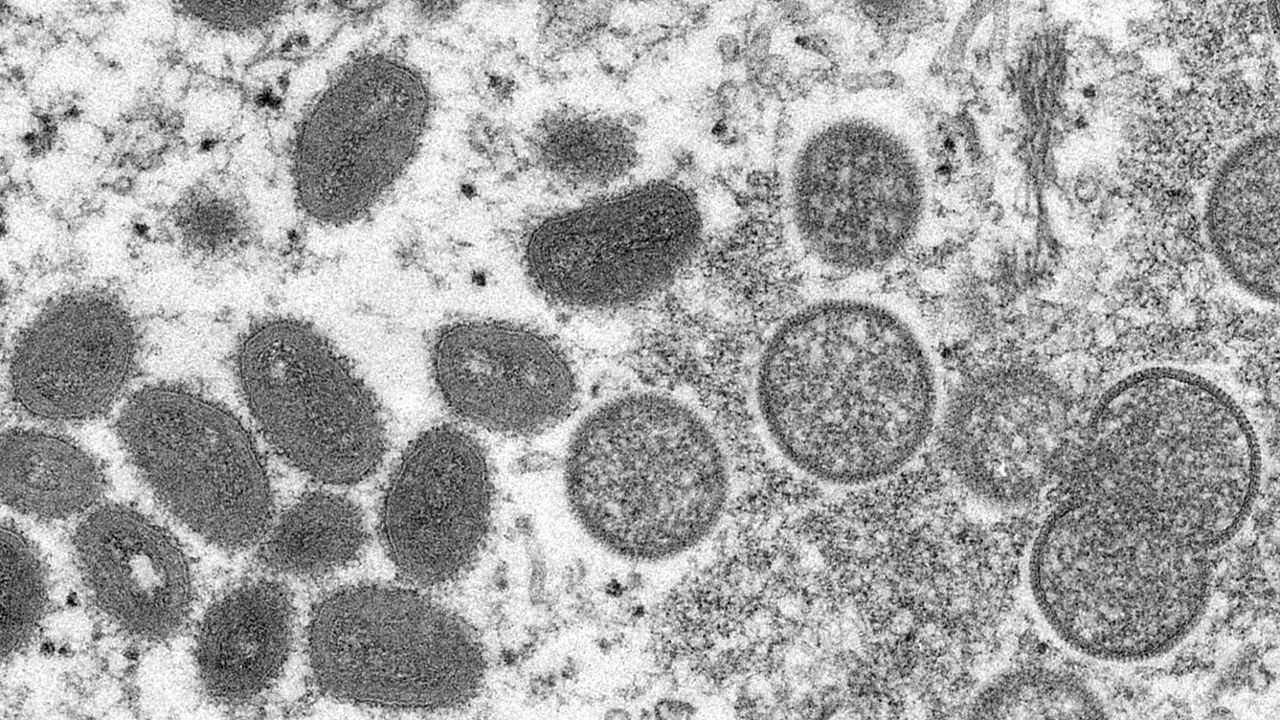Despite insisting last month the federal government had enough vaccine needed to manage the monkeypox outbreak, health officials acknowledged Friday demand for the shots has outstripped supply.
What You Need To Know
- Despite insisting last month the federal government had enough vaccine needed to manage the monkeypox outbreak, health officials acknowledged Friday demand for the shots has outstripped supply
- As of Thursday, there have been 1,470 confirmed cases across 42 states, the District of Columbia and Puerto Rico
- CDC Director Dr. Rochelle Walensky said with testing capacity being expanded, the government has updated its strategy to distribute shots to local government based on case counts rather than population sizes
- Dawn O’Connell, assistant secretary for preparedness and response at the Department of Health and Human Services, an additional 131,000 doses are available to be ordered by state and local governments that the Biden administration has ordered an additional 2.5 million doses, bringing the total number to nearly 7 million by mid-2023
As of Thursday, there have been 1,470 confirmed cases across 42 states, the District of Columbia and Puerto Rico. The number of infections has more than doubled in the past week and is nearly 15 times higher than a month ago.
Vaccine shortages have been reported in a number of cities. In New York, for example, the high demand for the shots caused the city’s appointment system to crash this week.
And San Francisco’s Department of Public Health said Wednesday it was closing its walk-in clinic for the rest of the week or until it received more federal vaccine supplies. Meanwhile, California state Sen. Scott Wiener released a statement saying “we are veering toward a public health mess of uncontrolled monkeypox spread in our community and many other communities.”
New York (414 cases) and California (180), along with Illinois (160), account for more than half the country’s infections.
“I want to acknowledge that at this time the demand for vaccines from jurisdictions is higher than our current available supply, and we know that this is frustrating,” Dr. Rochelle Walensky, director of the Centers for Disease Control and Prevention, said during a call with reporters Friday.
Walensky said with testing capacity being expanded, the government has updated its strategy to distribute shots to local government based on case counts rather than population sizes.
The Department of Health and Human Services announced last month it had begun shipping orthopoxvirus tests to five commercial laboratory companies, helping to expanding testing capacity from 6,000 a week to 70,000, according to the CDC.
Dawn O’Connell, assistant secretary for preparedness and response at the Department of Health and Human Services, said the government has distributed about 156,000 vaccine doses nationwide, including more than 100,000 in the past week.
She announced Friday an additional 131,000 doses are available to be ordered by state and local governments for delivery as early as Monday and that the Biden administration has ordered an additional 2.5 million doses, bringing the total number to nearly 7 million by mid-2023.
The U.S. is expected to acquire 300,000 more doses this month, and nearly 800,000 more are currently awaiting FDA clearance, expected by the end of July, at a plant in Denmark.
The vast majority of vaccines being distributed are Jyennos, which requires two doses administered four weeks apart. Health officials say another vaccine brand, ACAM2000, which can have serious side effects such as heart inflammation, is being made available in modest quantities.
Walensky said cases in the U.S. continue to predominantly be among men who identify as having sex with other men.
Monkeypox spreads through direct contact with bodily fluids or sores from someone who has been infected or through shared items such as bed sheets and towels. It also can be transmitted through close face-to-face interactions such as kissing, Walensky said.
The disease generally begins with flu-like symptoms — fever, headache, muscle aches and exhaustion — followed by lesions, which can result in long-term scarring of the skin. But some patients during the outbreak have not developed any flu-like symptoms, Walensky said in a previous news briefing.
There have been no deaths associated with the outbreak in countries outside where monkeypox is more frequently seen.
Health officials recommend anyone with symptoms should stay home except to get to tested, cover their lesions and avoid skin-to-skin contact with others until their scabs have fallen off and they’ve developed a fresh layer of skin.
Walensky said monkeypox case numbers are expected to rise further due to new streamlined reporting methods, increased testing and imminent cases from recent exposures — it can take up to three weeks for symptoms to develop.
Globally, there have been more than 11,000 monkeypox cases confirmed in 59 countries where the disease is not generally found, led by Spain, Germany and Britain.



